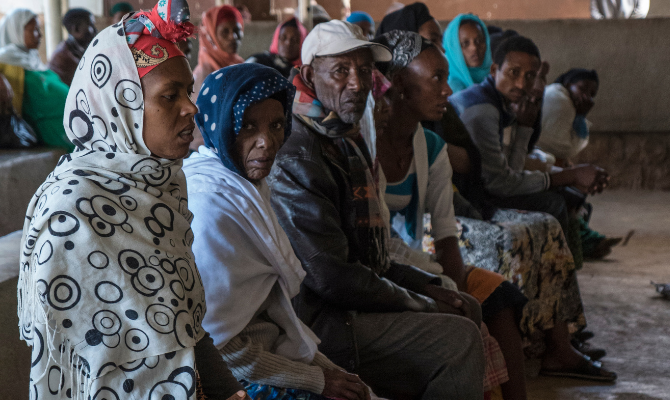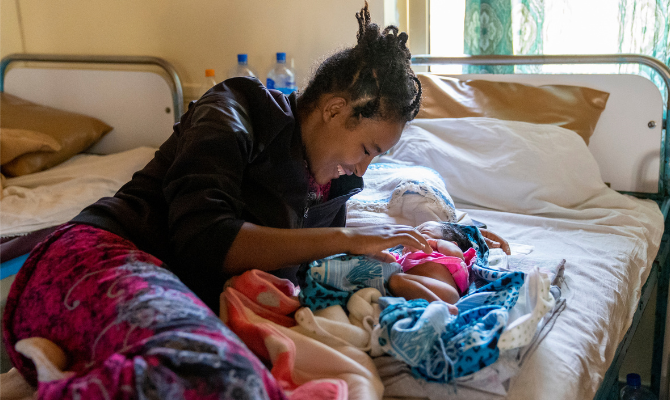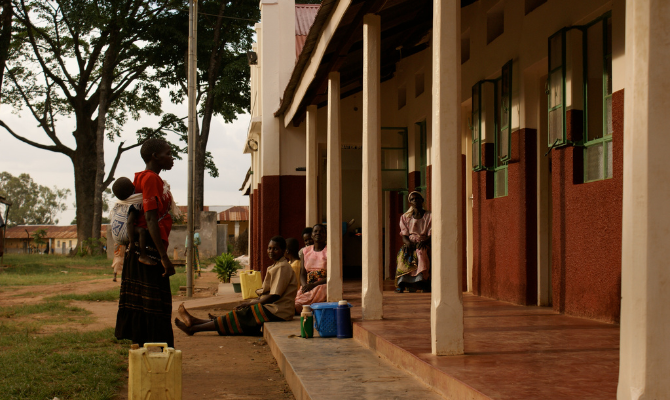Chronic non-communicable diseases affect more and more people around the world. Data from the Global Burden of Disease Study (GBD) show that in Ethiopia, 39% of deaths are caused by chronic non-communicable diseases, particularly cardiovascular diseases and cancer, which have significant health but also social and financial impacts. In Ethiopia, cancer is responsible for almost 39,480 deaths per year (WHO, 2019). Awareness about prevention and treatment remains low, as does the training of health workers in this area. Cancer treatment centres are also few, facilities are inadequate and resources are often lacking: there is a lack of radiotherapy and chemotherapy services. Moreover, the few centres with cancer services are located far away from rural areas, making access difficult if not impossible for many people.
As recommended in the NCDI report, the adoption of cost-effective preventive, screening and treatment approaches targeting the most common cancers in the country could improve morbidity and survival. Among the most common cancers globally, there is lung cancer, and it is precisely on this type of cancer that the Mathiwos Wondu Ethiopia Cancer Society (MWECS), an Ethiopian NGO that has been working on chronic diseases and cancer for years, is focusing its efforts through a project, supported by the Bristol-Myers Squibb Foundation, in collaboration with the Ministry of Health and Doctors with Africa CUAMM along with other local partners. The intervention focuses on promoting greater cancer awareness and strengthening the health system with regard to the referral of suspected patients for screening, diagnosis, treatment and palliative care. Added to this is the training and capacity building of health workers, along with the renovation and equipping of some health facilities to provide oncology services. These include the Tulu Bolo General Hospital in the Southwest Shewa Zone in the Oromia region, which will be the first General Hospital in the country to start chemotherapy for the treatment of lung cancer.
“Tulu Bolo will be the first General Hospital in the country to have a chemotherapy service for lung cancer. A great innovation for the national health service and for the treatment of patients who until now had no access to decentralised, dedicated and specialised services,” says Worku, project leader of Doctors with Africa CUAMM in the area.
This year, CUAMM, in collaboration with the Ethiopian Thoracic Society and MWECS, is supporting the start-up and operation of the Tulu Bolo General Hospital Unit dedicated to the treatment of lung cancer. Spaces for patient screening and evaluation, outpatient chemotherapy services and dedicated beds have been provided. The hospital has been equipped with personal protective equipment (gloves, gowns, bonnets, etc.), important to protect patients from possible infections during chemo administration, and equipment necessary for the adequate provision of services, which will be managed under the supervision of the oncology department of the Tikur Anbessa Hospital in Addis Ababa (TASH), thanks to the presence of specialised personnel: two general practitioners, three nurses and a pharmacist. In addition, awareness will be promoted among patients and the community at large, on cancer prevention and treatment; follow-up of patients still undergoing treatment or who have already completed it, and transfer to TASH in the case of any other treatment such as radiotherapy or surgery will be ensured.
“This was possible thanks to the development of the guidelines, adopted by the Ethiopian Ministry of Health, for the treatment of lung cancer at the general hospital level, a process that lasted almost two years and was supported by CUAMM,” Worku added. “A key aspect of this intervention is definitely the training and mentoring of health personnel so that they can acquire solid knowledge and skills to assess and treat lung cancer patients.
A big step forward in the fight against lung cancer in Ethiopia, to continue the daily commitment of bringing health services closer to communities.





